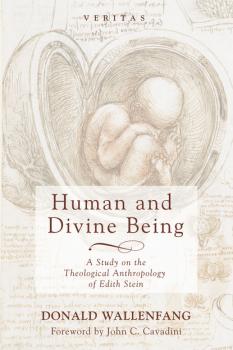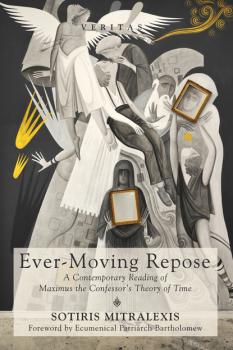ТОП просматриваемых книг сайта:
Религия: прочее
Различные книги в жанре Религия: прочее, доступные для чтения и скачиванияАннотация
This volume brings together a diverse group of scholars, including biblical, systematic, and historical theologians, to honor Gareth Lee Cockerill, longtime professor of New Testament at Wesley Biblical Seminary (Jackson, MS) and distinguished scholar of the book of Hebrews. The essays focus on various aspects of Hebrews' theology, ranging from the nature of «rest» in Hebrews to the interpretation of Hebrews in early Methodism. Readers will find resources to hear and comprehend Hebrews afresh and will be challenged to draw near to the throne of grace with confidence (Heb 4:16).
Аннотация
Elders Lead a Healthy Family explores the biblical paradigm for shared leadership: elders as the spiritual «big brothers» and shepherds to the family of God. This book is a fresh biblical alternative to the standard fare of pragmatic church leadership. Delivered in a winsome and irenic style, the book addresses the key concerns of our day, including pastoral burnout, women as elders, women and the pastoral gift, power in leadership, abuse of power in ministry, ministerial pay, and fostering missional-leadership structures. The answer to so many of the problems facing the church is not more coaching or better education. The answer requires our churches to change the very structures that foster abuse, isolation, and burnout. If we hope to save our pastors, then we need our pastors to abandon the «pastor-as-CEO» model of leadership. If we want to reach the lost, we need a systemic change in the way we plant, grow, and maintain our churches. Instead of putting a solo leader at the top of «Church Incorporated,» we need to build teams of elders, doing ministry together, as they lead the family of God.
Аннотация
Nothing is more dangerous to be misunderstood than the question, «What is the human being?» In an era when this question is not only being misunderstood but even forgotten, wisdom delivered by the great thinkers and mystics of the past must be recovered. Edith Stein (1891-1942), a Jewish Carmelite mystical philosopher, offers great promise to resume asking the question of the human being. In Human and Divine Being, Donald Wallenfang offers a comprehensive summary of the theological anthropology of this heroic martyr to truth. Beginning with the theme of human vocation, Wallenfang leads the reader through a labyrinth of philosophical and theological vignettes: spiritual being, the human soul, material being, empathy, the logic of the cross, and the meaning of suffering. The question of the human being is asked in light of divine being by harnessing the fertile tension between the methods of phenomenology and metaphysics. Stein spurs us on to a rendezvous with the stream of «perennial philosophy» that has watered the landscape of thought since conscious time began. In the end, the meaning of human being is thrown into sharp relief against the darkness of all that is not authentically human.
Аннотация
Unity is the categorical imperative of the church. It is not just the church's bene esse, but its esse. In addition to being a theological concept, unity has become a raison d'etre of various structures that the church has established and developed. All of these structures are supposed to serve the end of unity. However, from time to time some of them deviate from their initial purpose and contribute to disunity. This happens because the structures of the church are not a part of its nature and can therefore turn against it. They are like scaffolding, which facilitates the construction and maintenance of a building without actually being part of it. Likewise, ecclesial structures help the church function in accordance with its nature but should not be identified with the church proper. This book considers the evolution of some of these church structures and evaluates their correspondence to their initial rationale. It focuses on particular structures that have developed in the eastern part of the Christian oecumene, such as patriarchates, canonical territory, and autocephaly, all of which are explored in the more general frame of hierarchy and primacy. They were selected because they are most neuralgic in the life of the Orthodox churches today and bear in them the greatest potential to divide.
Аннотация
Sotiris Mitralexis offers a contemporary look at Maximus the Confessor's (580-662 CE) understanding of temporality, logoi, and deification, through the perspective of contemporary philosopher and theologian Christos Yannaras, as well as John Zizioulas and Nicholas Loudovikos. Mitralexis argues that Maximus possesses both a unique theological ontology and a unique threefold theory of temporality: time, the Aeon, and the radical transformation of temporality and motion in an ever-moving repose. With these three distinct modes of temporality, a Maximian theory of time can be reconstructed, which can be approached via his teaching on the logoi and deification. In this theory, time is not merely measuring ontological motion, but is more particularly measuring a relationship, the consummation of which effects the transformation of time into a dimensionless present devoid of temporal, spatial, and generally ontological distance–thereby manifesting a perfect communion-in-otherness. In examining Maximian temporality, the book is not focusing on only one aspect of Maximus' comprehensive Weltanschauung, but looks at the Maximian vision as a whole through the lens of temporality and motion.
Аннотация
King Solomon asserted, «love is as strong as death» (Song of Solomon 8:6). Solomon, the wisest of all Israel's kings, recognized that while every human would eventually succumb to death, death is not ultimate in power. The God whose essence is love designed and created both human life and death as instruments for the display of his own splendor and purposes. Neither human life nor death, then, can deviate from God's ultimate purpose and good for the creature made in his own image. Biblically, death serves as the perfect foil to mark both the immeasurable value of human life and at the same time the relatively limited value of it. Rather than either worshipping or desecrating this finite gift of human life, we can value it rightly and also worship the God who, in his literally infinite wisdom, gives and takes away life in accord with his good and gracious purposes.
Аннотация
I am the way, the truth, and the life, says Jesus. Yet the kingdom of heaven consists of all tribes, races, and peoples. How do people of tribes who've never heard the word of Christ enter the kingdom of God? A strictly exclusivist account of the gospel seems to keep many people out of the kingdom of heaven. An inclusivist approach is more consonant with Scripture and the love of God. Yet standard models of inclusivism are problematic. In this book McLeod-Harrison–a Christian philosopher–considers what's wrong with both narrow exclusivist and narrow inclusivist accounts of the gospel and proposes a broad inclusivism called «expansivism.» An expansive account of the gospel helps us understand the uniqueness and the openness of the gospel together. Narrow exclusivism can lead to existential crises. Narrow inclusivism appears to make not preaching the gospel better for those who've never heard it. Expansivism makes human access to the gospel unique to the individual person and enables Christian theologians to provide lots of different, potentially conflicting and yet true accounts of the theological underpinnings of the salvation provided by Christ.
Аннотация
For the past forty years the «Knox-Robinson Ecclesiology» has been the predominant ecclesiological model in the Sydney Diocese of the Anglican Church of Australia, one that emerged out of a series of theological contributions over two decades. The impact of this ecclesiology can be seen today across four continents (Australia, Europe, North America, Africa). Though pervasive in influence, there has–to date–been no extended systematic articulation of this ecclesiology, nor a serious and sustained appraisal of it. Here, the ecclesiologies of Donald W. B. Robinson (Vice Principal of Moore College 1959-1973, Archbishop of Sydney 1983-1992) and D. Broughton Knox (Principal of Moore College 1959-1985) are presented systematically, then analyzed and evaluated. Here, finally, is a thorough theological engagement with their provocative doctrine of the church.
Аннотация
The Cappadocian Fathers had great influence on the church of the fourth century, having brought their passion for Christ and theological expertise to life in their ministry. Their work was not devoid of influence, including that of their immediate family members. Within their writings we uncover the lives of seven women, the Cappadocian Mothers, who may have had more influence on the theology of the church than previously believed. As the Cappadocians wrestle with the Christianization of the concept of deification, we find the women in their lives becoming models for their theological understanding. The lives of the women become points of intersection in the kenosis-theosis parabola. Not only are the Cappadocian Mothers uncovered in the texts, but they become models of an optimistic theology of restoration for all of humanity without constraint of gender.
Аннотация
A collection of essays composed during the Obama presidency on politics, theology, art, and education. Social and political critique, pastoral philosophy, postmodern theology, deschooling, and folk phenomenology: Rocha's essays in Tell Them Something Beautiful cover a range of topics and ideas, held together by his literary style and integrated point of view.










